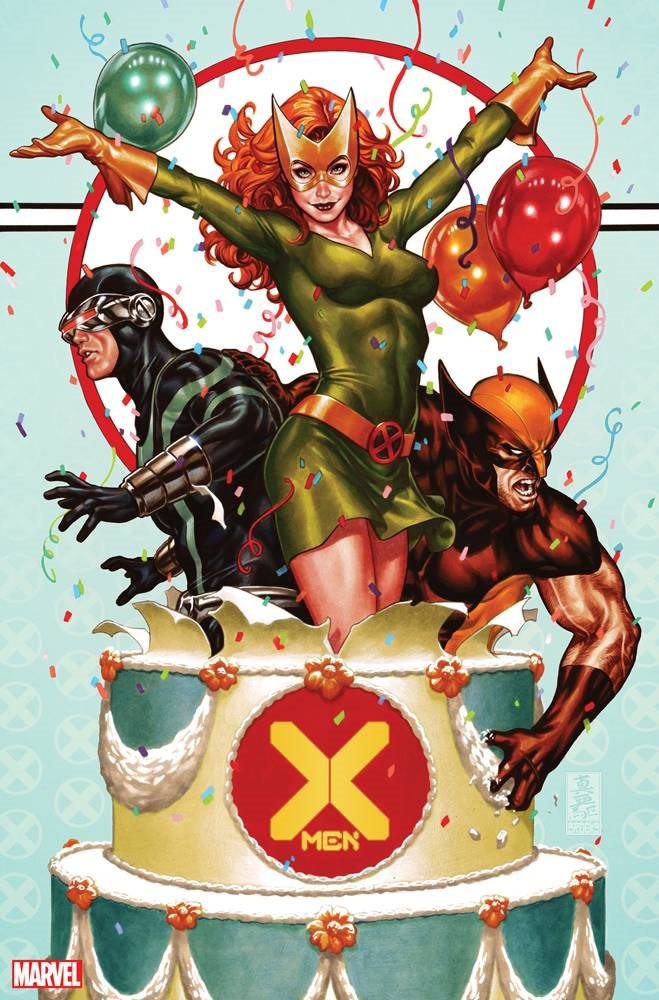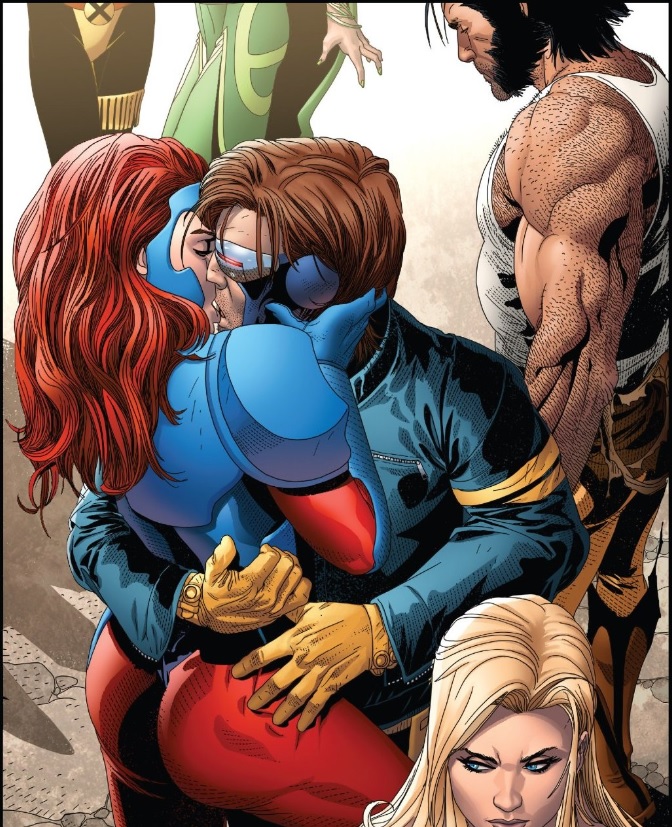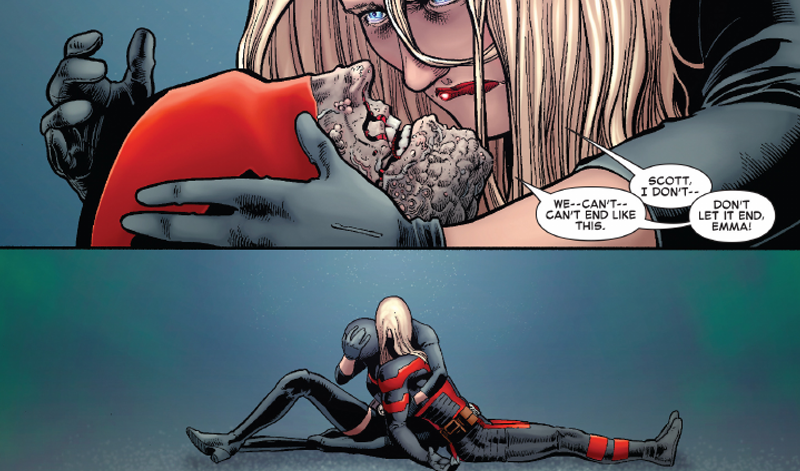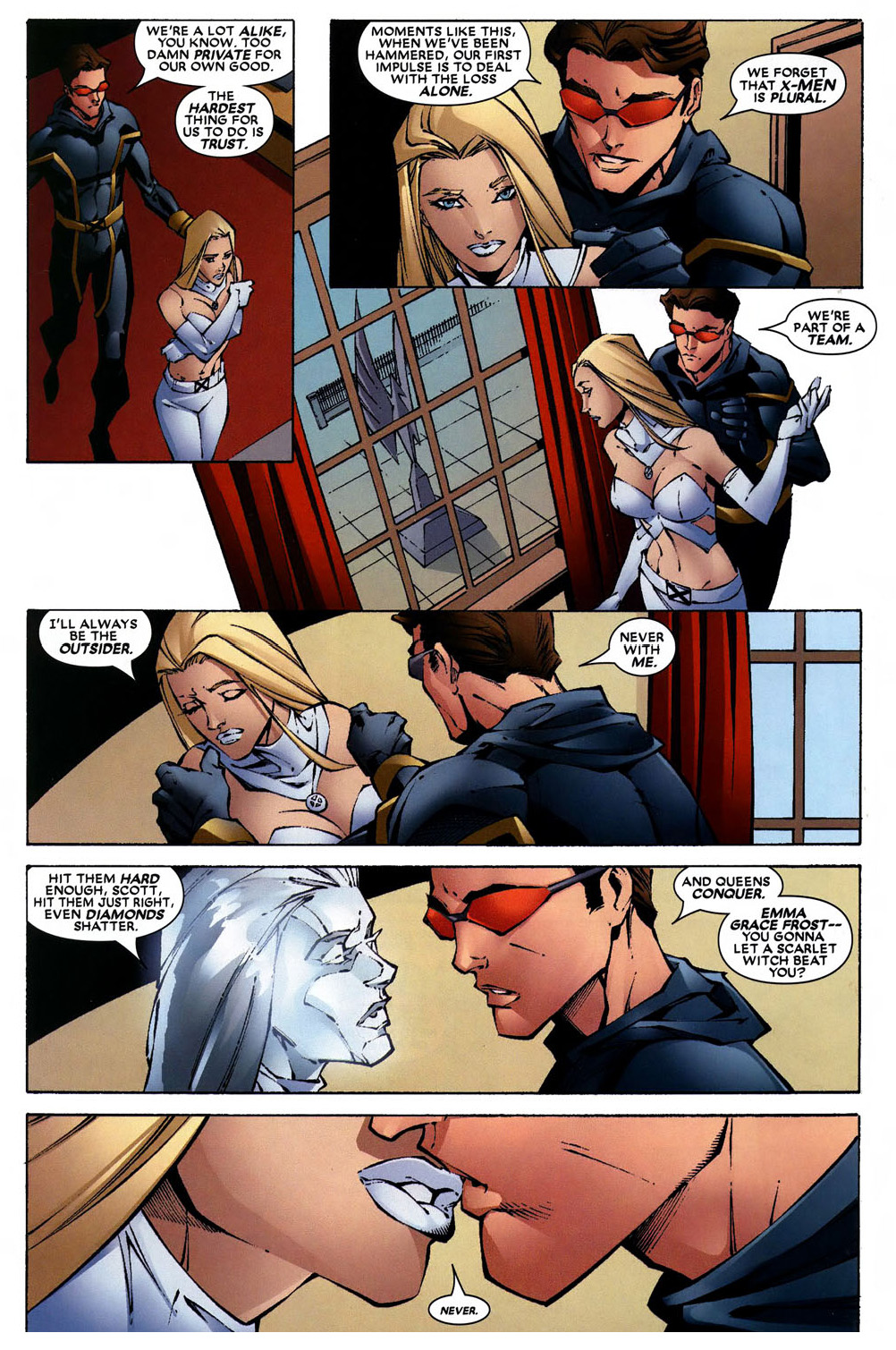The following is a video from my YouTube channel, Jack’s World. It’s about love triangles and why they suck. Need I say more? Enjoy!
Tag Archives: love triangles
The Potential (And Pitfalls) Of Polyamory In The X-Men Comics

Two years ago, I wrote an article that explored the idea of using polyamory to resolve the infamous Cyclops/Jean Grey/Wolverine love triangle in the X-Men comics. I admit that it was primarily a thought experiment. It was my way of attempting to resolve what I believe to be the worst manifestation of a love triangle in all of fiction. I never expected it to manifest in any form outside head canon of fan fiction.
Then, “X-Men #1” by Jonathan Hickman and Leinil Francis Yu came out, almost two years to the day that I published that article. While it wasn’t overtly stated that polyamory is now a thing in the X-Men comics, there were certain details that strongly hinted at it, so much so that multiple outlets in the world of comics have taken it seriously.
I’m not saying the article I wrote was prophetic. I certainly didn’t predict that Marvel would ever pursue this recourse or even hint at it. At the same time, it’s kind of surreal that this is something that might actually play out in mainstream superhero comics. The fact that it’s playing out in a company owned by Disney makes that even more astonishing.
Now, before I go any further, I want to make one thing clear. After reading “X-Men #1” and all the speculation surrounding it, nothing has been definitively confirmed. The writers and editors at Marvel have not stated outright that they’re actually making Cyclops, Jean Grey, and Wolverine a polyamorous couple. It’s been hinted at, but not confirmed on panel.

In comics, that means a lot. Like a death without a body, if it doesn’t happen explicitly on panel, then you can’t assume it did. That’s just how comics work. That extends to love triangles, polyamory, and everything in between.
That said, I think Hickman and Yu have created the right circumstances. Two years ago, Jean Grey was still dead, Cyclops was dead, and Wolverine had just come back to life. The events of House of X and Powers of X establish that the X-Men, and the rest of the mutant race for that matter, have established a new world for themselves on the living island of Krakoa. It’s a chance to do things differently.

In this new setup, the tensions and melodrama of the past are left in the past. The final pages of House of X #6 make that clear, especially with Cyclops, Jean Grey, and Wolverine. There’s even a nice moment between Jean Grey and Emma Frost, who have been bitter rivals for years. Hickman makes clear that these characters are looking to move forward and not revisit old drama.
The only question is what does that entail? Does moving forward simply mean moving past these old romantic complications? The final pages of “Uncanny X-Men #22,” which predate House of X and Powers of X, establish on panel that Cyclops and Jean Grey are still a thing. They still love each other and don’t hesitate for a second to embrace one another, now that they’re alive again.

However, it’s not quite as clear that they’re content to pursue the same relationship they had before Jean died at the hands of Magneto back in 2004. On some levels, it makes sense to do something different. Both Cyclops and Jean Grey know what happens when they try to ignore these other feelings. They just fester under the surface and it hurts them both in the long run.
Even though their love for one another is very clear, the way they go about their relationship has shown plenty of flaws, going back to the days of Chris Clarmeont’s run on Uncanny X-Men. They still want to be together. They even want to be a family. The events of “X-Men #1” depict them as more a family than reunited lovers, which I thought was both sweet and overdue.
It’s also in this area that the potential for polyamory has already revealed itself. Most have pointed out the unusual arrangement of Cyclops, Jean Grey, and Wolverine’s rooms on the new moon-based Summer house. They’re all connected with Jean’s room in between Cyclops’ and Wolverine’s. They even have doorways between them, which is something the other rooms don’t.
:format(webp):no_upscale()/cdn.vox-cdn.com/uploads/chorus_asset/file/19290473/IMG_FA73493783F8_1.jpeg)
It’s not definitive confirmation, but it certainly implies the possibility. Solicits of future issues have also hinted that Emma Frost may enter the picture as well. If Hickman, Yu, and Marvel are serious about pursuing this plot, then it could open the door for a very different kind of romantic sub-plot, the likes of which we haven’t seen in superhero comics.
While superhero comics have been quite progressive at times, and even somewhat daring, when it comes to pursuing non-traditional relationships, they’ve never attempted to tackle polyamory. Even though it exists in the real world, it’s not something superhero comics have ever taken seriously. This could change that.
A seriously, well-written polyamorous relationship between Cyclops, Jean Grey, and Wolverine could effectively redefine what it means for these characters to love one another. It helps that it’s happening at a time when the X-Men and the entire mutant race are redefining themselves on Krakoa. They’re building their own homeland and culture. Why wouldn’t they redefine how they handle relationships while they’re at it?
It could address some of the most egregious flaws that the love triangle has propagated over the years. Jean Grey would no longer be a prize to be won by Cyclops or Wolverine. Cyclops would no longer be an obstacle for Wolverine. More importantly, it would allow Wolverine to have his romantic connection with someone without being limited by it. For someone with his extensive romantic history, that’s very important.

However, that’s the best case scenario. It also assumes that Hickman is serious about pursuing this sub-plot. Like I said earlier, it has not be confirmed on-panel. There’s no hint in House of X, Powers of X, or “X-Men #1” that there’s something elaborate going on with them. They just carry themselves as though they’re on much better terms than they were before they all died on one another.
There are risks associated with pursuing this kind of relationship. While Hickman is a great writer with a great pedigree for superhero comics, he’s never tackled a love triangle with this much baggage. If handled poorly, it could do serious damage to all the characters involved.
It could devalue the depth and history of the Cyclops/Jean Grey romance, which is one of the most iconic in all of superhero comics. It could also take a character like Wolverine, who has a complicated history as a loner who rarely gets tied down by one relationship, and make him seem out of character. Him becoming a part of the Summers/Grey family would be like James Bond joining the clergy.
There’s also a chance that a polyamorous relationship with these three could devolve into something that is just played up for novelty. The fact that it’s so different can’t be the only reason for doing it. If it is, then it’s not going to be believable and the characters involved will suffer because of it.

Given how these characters have already suffered, I don’t think the time is right to deconstruct their relationships and romantic sub-plots the only reason for doing so is shock value. These are characters poised to enter the MCU at some point. I doubt Disney will want them overly complicated before that occurs.
Personally, it’s for that reason that I doubt Marvel will seriously pursue a polyamorous relationship between Cyclops, Jean Grey, and Wolverine. They may hint at it. They may tease it. They’ll do everything possible, except depict it on panel, which will keep readers guessing and speculating. It’s something they’ve done before, much to the chagrin of fans.
If they do try it, though, I sincerely hope that Hickman, Lu, and the rest of Marvel’s creative team takes the concept seriously. The X-Men, throughout their history, have depicted characters who are very different, if not downright weird compared to the rest of the world. If that’s going to extend to how they pursue romance and relationships, then it deserves a serious effort.
However, it cannot and should not come at the cost of the characters or the iconic romances that came before it.
Filed under polyamory, romance, sex in media, sex in society, sexuality, superhero comics, X-men























